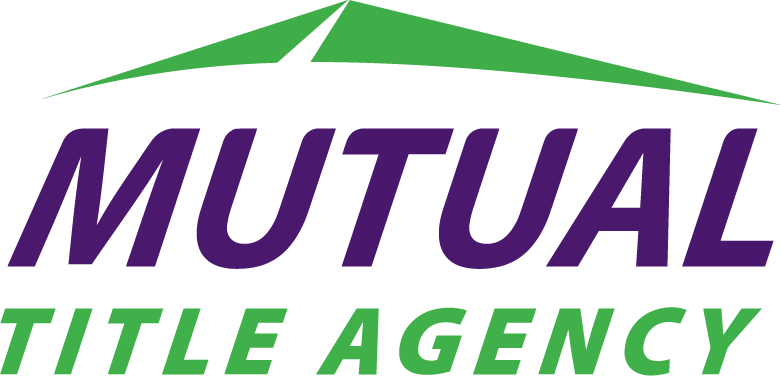
When buying a home, you may hear many terms that you may not be familiar with or fully understand. It is important in this buying process to know what is being stated by your realtor, loan officer, contracts, and others. To better understand some of these terms, here are five you may encounter during the closing process of buying a home to get you started.
1. Underwriting
Underwriting is "the process through which an individual or institution takes on financial risk for a fee" (Banton, 2021). The most common type of loan underwriting is mortgages. The process of underwriting essentially researches factors such as income, employment, debt, credit score to assess whether the applicant will repay the loan according to the agreement.
Underwriters essentially estimate the degree of risk the applicant can take on before assuming the risk. Once reviewed, the research helps underwriters set fair rates for the loan amount the borrower is requesting. In some cases, the applicant's risks are deemed too high to assume the risk of the loan. Underwriters can then refuse the applicant at this time.
2. Closing Costs
Closing costs are "the expenses, over and above the property's price, that buyers and sellers usually incur to complete a real estate transaction" (Chen, 2021). These costs may include origination fees, discount points, appraisal fees, title searches, title insurance, surveys, taxes, deed recording fees, and credit report charges.
Closing costs cover the extra charges/fees you pay to complete the buying process, not including your monthly mortgage payments. These charges are additional fees, like taxes, as stated above. All closing costs are required to be stated in a good faith estimate (GFE) for a fair evaluation of expected costs and terms for the buyer. This estimate happens earlier in the process after a home loan application is submitted. Both buyers and sellers are subject to closing costs.
3. Closing Disclosure
A closing disclosure is the document "that contains the locked-in costs of your loan and the specific amount you'll need to pay at closing" (Kagan, 2019). This disclosure comes after the good faith estimate, when in the final stages of the closing process.
While the GFE gives a fair estimate of closing costs, the closing disclosure gives the buyer the exact amount of charges/fees they will need to pay. The closing disclosure can provide other details like the initial loan estimate (GFE) for comparison and loan details like interest rate and monthly payment.
4. Deed
A deed is "a signed legal document that grants its holder specific rights to an asset—provided they meet a number of conditions" (Liberto, 2019). Deeds are used to show ownership or transfer a title. The deed proves ownership as a physical document signed by both parties and filed for ownership of property. Deeds must be written, filed in the public record, and notarized. If these requirements are not met, though valid, the deed could face legal challenges.
You may also hear the term "title" used interchangeably with "deed," but there is a slight difference between them. As stated before, the deed is a physical document that proves ownership. The deed lays out the rights to the property and states that the buyer has the title or ownership of the property. However, the title is a concept, a legal position stating who has ultimate property ownership. This ultimate ownership means the buyer has a legal right to use the property.
5. Escrow
An escrow is "a legal concept describing a financial instrument whereby an asset or escrow money is held by a third party on behalf of two other parties that are in the process of completing a transaction" (Banton, 2021). In short, an escrow holds money, securities, and other assets, for one party before it is transferred to the other party. This is commonly used in the process of buying a home but can be used in other scenarios.
For example, say a company A is selling machines to company B in another country. Company A does not want to send the machines until they are assured they will get the payment. Company B does not want to pay company A until they receive the machines in one piece. Company B can place the payment in an escrow and set instructions to disburse the payment once the machines arrive. The escrow ensures that both parties will receive what they need.
Learn Before you Buy
While these are just a few of the real estate terms you may hear when closing on a home, it is important to know the terms related to other stages in the buying process. This can help you understand what is being stated by the parties involved and what is required of you as the buyer. Get familiar with these terms and be prepared for your home buying experience.
Sources
Banton, Caroline. “How Escrow Protects Parties in Financial Transactions.” Investopedia, Investopedia, 19 May 2021, www.investopedia.com/terms/e/escrow.asp.
Banton, Caroline. “How Underwriters Assess the Risk of Insurers.” Investopedia, Investopedia, 19 May 2021, www.investopedia.com/terms/u/underwriting.asp.
Chen, James. “Closing Costs Definition.” Investopedia, Investopedia, 10 June 2021, www.investopedia.com/terms/c/closingcosts.asp.
Kagan, Julia. “What Is a Closing Statement?” Investopedia, Investopedia, 19 May 2021, www.investopedia.com/terms/c/closingstatement.asp.
Liberto, Daniel. “Deed Definition.” Investopedia, Investopedia, 19 May 2021, www.investopedia.com/terms/d/deed.asp.
